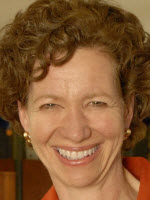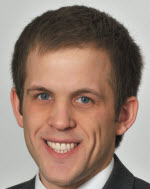Guest column: 'Doctor shortage' doesn't affect everyone in Michigan equally
By Marianne Udow-Phillips and Josh Fangmeier/
Center for Healthcare Research & Transformation
Ron French's recent piece in Bridge highlighted concerns about the supply of primary care physicians in Michigan, today and into the future. In 2014, assuming the Affordable Care Act takes full effect in Michigan, the state’s primary care system will be further strained by the ACA’s Medicaid and private insurance market expansions.
While there are clear capacity and access issues to address in medical care, the solutions to those issues must be specific and targeted at the right problems. French’s article cites limits on medical residencies as a key factor in the shortage of rural primary care physicians, and expanding the number of residencies as a solution. But is that really the key?
First, it is important to stipulate that adequate funding for graduate medical education is essential to assure the strength of the state’s -- and the nation's -- medical care system. Training future physicians to deal with the technical and interpersonal demands of medical care will require robust programs with predictable and sufficient funding sources. For many years, patient care funds have been the predominant funding source for graduate medical education in this country, and that model is likely to continue into the future.
Research tells us that caregiver shortages are connected to a range of factors other than the number of available residencies. Indeed, according to the Association of American Medical Colleges, fewer than 46 percent of active physicians trained in Michigan hospitals today are practicing medicine in the state. It is unclear how simply having more residency slots would change that picture.
Rather, it is important to understand that the primary care “shortage” is not uniform across the state, or across payer groups. Indeed, some believe that with more effective use of technology, the shortage might not be in primary care at all, but rather in some kinds of specialty care.
But while the right ratio of primary care physicians to population is a matter of some debate, there is little debate that the biggest problems in access to medical care occur in rural areas and with certain population groups -- especially those who are uninsured or receive Medicaid. In our most recent survey of health care access in Michigan, 42 percent of Medicaid recipients had been told the primary care physician they wanted to
see did not accept their coverage (compared to only 12 percent of those with employer-sponsored insurance).
While physicians, dentists, and others cite a range of issues as reasons they are less likely to see uninsured or Medicaid patients, compensation issues are generally central. When it comes to choosing a community -- rural or otherwise -- in which to live and practice, research shows that lifestyle and family opportunities are key; student debt, competing job opportunities, availability of health system resources are among the many other factors in play.
In health care, as in other disciplines, understanding the root cause of a problem is critical to crafting the right policy solution. The health care work force policies we make today will have important implications for us all, long into the future, so as we prescribe the “medicine” for future primary care shortages, let’s make sure we first understand the underlying disease.
See what new members are saying about why they donated to Bridge Michigan:
- “In order for this information to be accurate and unbiased it must be underwritten by its readers, not by special interests.” - Larry S.
- “Not many other media sources report on the topics Bridge does.” - Susan B.
- “Your journalism is outstanding and rare these days.” - Mark S.
If you want to ensure the future of nonpartisan, nonprofit Michigan journalism, please become a member today. You, too, will be asked why you donated and maybe we'll feature your quote next time!



